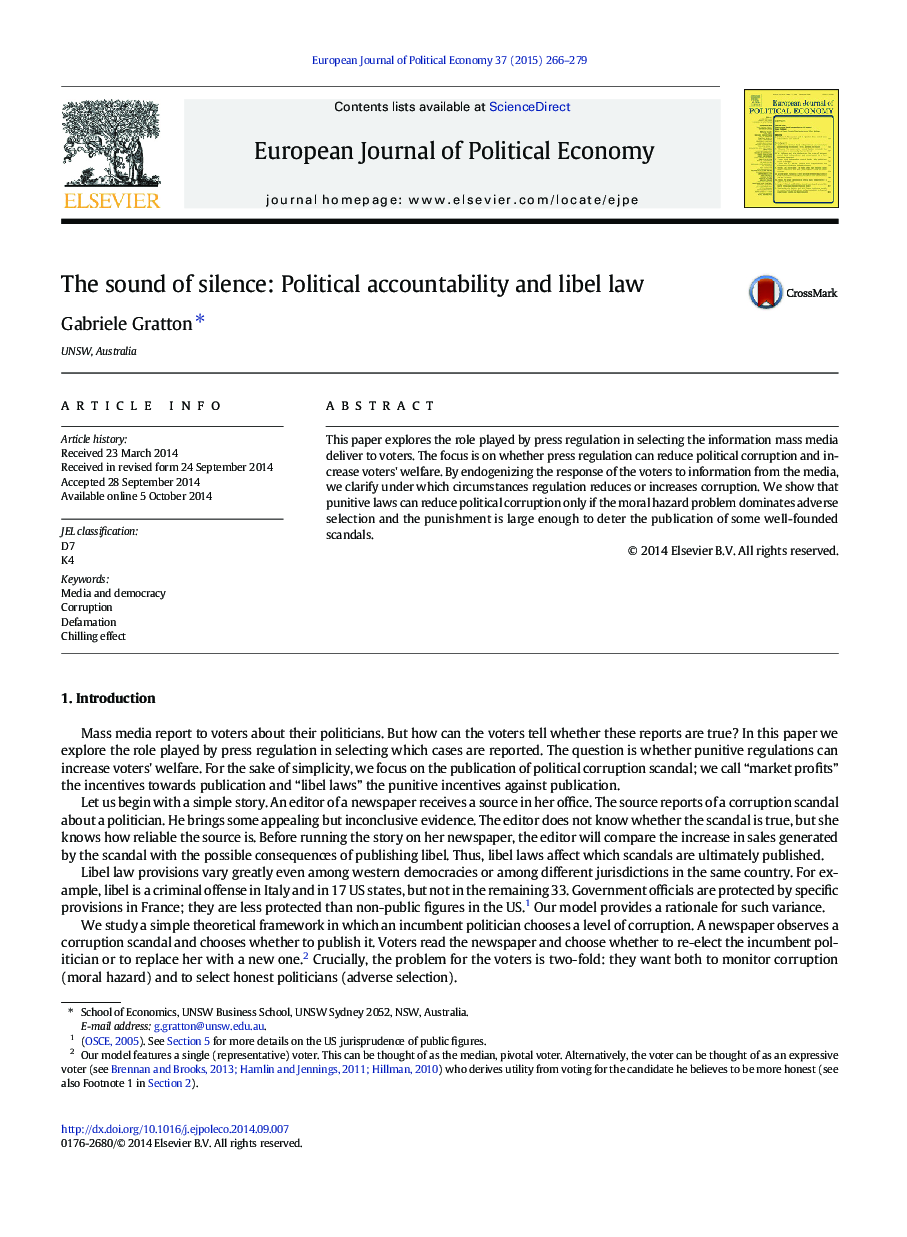| Article ID | Journal | Published Year | Pages | File Type |
|---|---|---|---|---|
| 5067978 | European Journal of Political Economy | 2015 | 14 Pages |
â¢We study how press regulation selects the information mass media deliver to voters.â¢When do restrictive regulations reduce corruption and increase voters' welfare?â¢The answer depends on the relative importance of moral hazard and selection.â¢Corruption decreases only if regulations deter publication of well-founded scandals.
This paper explores the role played by press regulation in selecting the information mass media deliver to voters. The focus is on whether press regulation can reduce political corruption and increase voters' welfare. By endogenizing the response of the voters to information from the media, we clarify under which circumstances regulation reduces or increases corruption. We show that punitive laws can reduce political corruption only if the moral hazard problem dominates adverse selection and the punishment is large enough to deter the publication of some well-founded scandals.
